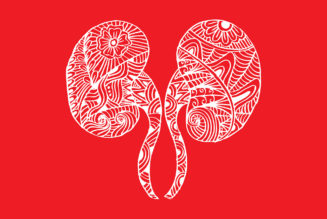February is American Heart Month, a time when everyone is encouraged to focus on their cardiovascular health. Heart disease has long been the leading cause of death for both men and women, surpassing cancer. Almost 15,000 Alabamians’ deaths were attributed to heart disease and more than 3,000 lives were claimed by cerebrovascular disease, including strokes, in 2022.
Lifestyle changes and, in some cases, medicine, can greatly reduce risks for heart disease. About half of all Americans (47 percent) have at least one of the three key risk factors for heart disease: high blood pressure, high cholesterol, and smoking.
Heart health risk factors are summarized as follows:
- High Blood Pressure: High blood pressure is often called a “silent killer” because it usually has no symptoms. Unfortunately, too many Alabamians do not realize they have hypertension, and over time, damage can be done to organs and other systems throughout the body. The only way to know whether you have high blood pressure is to measure it.
- Unhealthy Blood Cholesterol Levels: High blood cholesterol usually has no signs or symptoms. The only way to know whether you have high cholesterol is to get your cholesterol checked. Your healthcare team can do a simple blood test, called a “lipid profile,” to measure your cholesterol levels.
- Smoking: Cigarette smoking can damage the heart and blood vessels, which increases your risk for heart conditions such as atherosclerosis and heart attack.
- Diabetes: The risk of death from heart disease for adults living with diabetes is higher than for adults who do not have diabetes. Talk with your doctor about ways to prevent or manage diabetes and control other risk factors.
The Centers for Disease Control and Prevention encourages everyone to take an active role in their health and learn what it takes to keep your heart healthy. Healthy habits include choosing healthy foods and drinks, maintaining a healthy weight, getting regular physical activity, and not smoking or vaping. Medications may include those that lower cholesterol and blood pressure.
Alabama state employees have the opportunity to learn whether they have risk factors for heart disease. Since 2009, the State Employees Insurance Health Plan has offered wellness screenings for state employees and their dependents as part of its Wellness Program. More than 45,000 employees and family members have been referred to healthcare providers for early treatment of identified high risks since January of 2009.
The Health Department offers programs to promote heart health. The Cardiovascular Health Program provides support including self-monitoring blood pressure stations around the state by partnering with senior centers, libraries, and other community sites. The WISEWOMAN Program, available in several counties, provides services to improve high blood pressure and promote healthy lifestyles for low-income, uninsured, and underinsured women. The Well Woman Program offers services to promote healthy living and prevention/early detection of disease for women ages 15-55 residing in some Alabama counties. Services include cardiovascular disease risk factor screenings, risk reduction counseling, nutrition classes, support groups, and physical activity resources to sustain a healthier lifestyle.
Many Alabamians have taken positive steps to lower their heart disease risk by working with their healthcare provider and following their treatment plans. This means taking medications as directed and making lifestyle changes such as lowering sodium for those with high blood pressure.
For those who wish to improve their heart health by quitting the use of tobacco products, the Alabama Tobacco Quitline offers free calls, free coaching, and free nicotine patches (if medically eligible and in coaching). Information, referrals, and counseling are confidential, and sessions are designed on a schedule convenient for the caller. Those who enroll in the counseling program can receive, if medically eligible, up to 8 weeks of nicotine patches to assist in quitting. Call 1-800-QUIT NOW or go to quitnowalabama.com.
While heart conditions can be debilitating or deadly, they are often preventable. By living a healthy lifestyle, you can help keep your blood pressure, cholesterol, and blood sugar levels in a healthy range and lower your risk for heart disease and heart attack.
Information about making heart healthy choices is available at ADPH’s Nutrition and Physical Activity website.
Scott Harris, M.D., M.P.H.
State Health Officer









